
“See me…I see You”: Unlocking the potential of the ‘Global Majority’
Emotional intelligence and the related competencies must be informed by CQ and by an understanding of DEI to relate and lead most effectively in the diverse contexts of the modern workplace.
Session goals / approach:
- Goal- Understand by way of personal stories how EQ undergirds and is informed by both an understanding of DEI and cultural competencies.
- Takeaways:
- Reframe global majority
- Advance EQ informed by DEI
- Advance EQ informed by CQ
- Takeaways:
- Introductions
- Who are you, how did you become who you are?
- What do you do?
- What is EQ to you?
- The moderator defines some parameters of EQ (brief overview)
- What’s its effect? (disclosing research)
- Positively correlated to job performance.
- Cultures of belonging
- What’s its effect? (disclosing research)
- So how do we lead and advance cultures of belonging in global and diverse contexts?
- What does a culture of belonging mean to you?
- Global, intercultural, and diverse
- “Minorities” is a misnomer
- Global, intercultural, and diverse
- Who are some of the best examples of high EQ that you know and what do they do differently than others? What does it look like?
- Empathy and effectiveness
- Psychological safety to belong and disclose
- Traits
- Humility
- Curiosity
- Empathy
- Openness
- Low EQ:
- Reactionary, dismissive, condescending
- Micro inequities and microaggressions.
- What can you practically do to support high EQ workplaces?
- What does a culture of belonging mean to you?
- What are the practical structures, policies, and behaviors that you personally utilize most frequently to support cultures of belonging in the workplace?
- Practical
- Invest in the person, not just the role and function
- Cultural context to frame experience
- Compassion at disclosed difficulty
- Learn to actively listen, immerse yourself in what they’re saying, not just what you need to reply to.
- Learn names.
- Ask for feedback
- Empathetic imagination, watch assumptions of motive. Perspective
- Practically informed EQ
- What does the day-to-day look like with EQ? What does it change?
- What do reviews look like?
- What does hiring look like?
- What are some best practices to let your people know you care?
- What are the biggest challenges in applying EQ in the workplace?
- Content in system:
- JW- EQ +reflections - 9 questions
- Practical
Additional thoughts:
- Why do you think that research shows that growth in an organization leads to lessening EQ for individuals?
- “Character is how you treat those who can do nothing for you.” “The lowest ranking person in an organization will likely see the most unadulterated version of each person.”-
- Create a simple demo that explores one dimension per session, and allows the user to see a sample of the learning content. This can be incorporated as part of each session, allowing a connection to the solution and ideally creating the appetite to learn more.
- Provide credentials at the end of the 3rd session to allow for “test drive”
- “Character is how you treat those who can do nothing for you.” “The lowest ranking person in an organization will likely see the most unadulterated version of each person.”-
- EQ Feedback
- Consider presenting research that shows sponsorship and, not just mentoring, are primary factors in advancement (https://www.catalyst.org/research/mentoring-necessary-but-insufficient-for-advancement/ )
- How can leaders be more inclusive and intentional about mentoring and sponsoring diverse talent?
- What role do empathy, listening, and self-awareness play in creating inclusive relationships? Visit https://www.ccl.org/articles/leading-effectively-articles/empathy-in-the-workplace-a-tool-for-effective-leadership/
- Consider using a moderator and having a mentor, mentee, and sponsor on the panel discussing from each perspective; use real-world storytelling to weave in concepts of cultural awareness, communication, and empathy as enablers to effective mentorship and sponsorship
- Provide key actions and summary learning bringing key learnings from all 3 sessions under the “leading inclusively” in a global environment perspective
Featured Speakers:
Kendice Briggs
SVP of Human Resources, UNIFY Financial
Beginning with her extensive experience in the financial services sector, Ms. Briggs’ led the HR function at Downey Savings & Loan Association (now U.S. Bank), she oversaw a team of more than 20 for the $14 Billion financial institution. Ms. Briggs helped to grow the branch infrastructure from 42 branches to over 185 retail bank offices.
In 2008 she joined Westfield Corp., one of the world’s leading shopping center companies with more than $17 Billion in revenue. Leading the HR function at Westfield, Ms. Briggs oversaw all recruitment, employee relations, benefits administration and compliance initiatives for the company’s U.S. corporate division and devised and implemented key programs in the organization’s extensive field operation.
In 2010 one of Ms. Briggs’ most challenging roles so far has been her position as Senior Vice President of Human Resources at Playboy Enterprises, Inc., a brand with more than 97% unaided global awareness, businesses in virtually every corner of the world, and a continually evolving organizational structure.
In 2017 Ms. Briggs leveraged her knowledge and years of expertise in the area of human capital management and opened her own HR consulting service and was able to help numerous clients ranging from entertainment and media firms to non-profit foundations.
Currently Ms. Briggs is the SVP of Human Resources for UNIFY Financial, a $3 Billion financial institution that operates in over 17 states. In addition to overseeing HR, payroll, recruiting and benefits, Ms. Briggs also oversees the facilities function that encompasses all branches and operation centers.
She holds a Bachelor of Arts in Psychology from the University of California, Los Angeles and is currently completing a dual master’s degree in Legal Studies and Dispute Resolution from Pepperdine Caruso School of Law.

Mark A. Tribbitt, Ph.D.
Associate Professor
Mark earned his Ph.D. in Strategic Management from Drexel University, an MBA from Villanova University, and a B.S. in Finance from the University of Delaware. His teaching focuses on strategic management, entrepreneurship, and management of technology and innovation. Mark’s primary research interest deals with the intersection of corporate governance and corporate entrepreneurship.
In addition to teaching and research, Mark has consulted a number of organizations in strategic direction, business model development and operations management. He is also a corporate coach and advisor assisting executives in enhancing their leadership and strategic thinking skills.
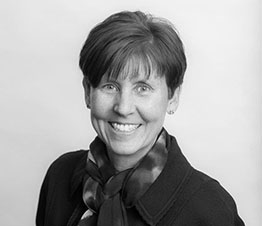
Panel Moderator
Dr. Kristin S. Walle
SVP and General Manager, ADP
View Recording
“Beware of You!”: Avoiding the pitfalls of personal biases
We all have biases, the only question is are we aware. Once we’re aware of our personal biases and assumptions, we must also become aware of their impact on our decision-making, which leads to wrong conclusions and suboptimal results. We will discuss various dimensions such as gender, age, and sexual orientation/identity to discover how to grow and create cultures of belonging in the workplace where everyone feels respected, valued, and able to contribute their best
Session goals / approach:
- Goal- Unravel a bit of “otherness” in leadership by way of leaders sharing their stories.
- Takeaways:
- First steps for how to guard against personal biases
- Understanding that perspectives differ greatly based on numerous personal dimensions.
- Some practical ways to grow to see other perspectives.
- Takeaways:
Session goals / approach:
- Goal- Unravel a bit of “otherness” in leadership by way of leaders sharing their stories.
- Takeaways:
- First steps for how to guard against personal biases
- Understanding that perspectives differ greatly based on numerous personal dimensions.
- Some practical ways to grow to see other perspectives.
- Takeaways:
- Recap and intro (5 min):
- CQ session to contextualize Culture of Belonging
- Introduction into DEI dimensions - We all have parts of ourselves that are seen and unseen
- Older fish swims by two younger fish, “How’s the water?” One of the younger fish turns to the other and says “What’s water?”
- Present statistics on the correlation of diversity and productivity.
- Introductions:
- Tell the story –
- Who are you, what do you do, and when did you first remember feeling seen in a professional context? When did you first feel heard? When did you first feel valued?
- Tell the story –
- Understand the challenges to overcoming personal bias
- Storytelling
- You:
- Your experiences of biases in both your personal and professional life. How did you feel about the organization?
- How and when do you feel safe to reveal parts of yourself in professional contexts?
- What’s the barometer you use to disclose or not?
- How to be you, how to be authentic?
- Others:
- How did you first become aware of differences that are not a part of your own makeup?
- How do you open yourself to different thinking and broaden your definition of “high potential” talent?
- How do you equip and coach those who have not had a seat at the table before?
- How do you bring people to the table and make sure to hear them?
- How do you move from business-as-usual to business-without-exclusion?
- You:
- Provide practical actions leaders can take to disrupt bias
- Be your own “devil’s advocate”; when you make a decision/assumption, ask yourself “based on what”?
- Resumes and name changes - be cognizant of algorithm biases?
- Be intentional about broadening your network and “inner circle” to individuals that don’t share your background or look like you
- Avoid using “first impressions” and anecdotes, use standardized objective criteria.
- Take care to question your self-justifications.
- Expose yourself to different perspectives and stories
- Action plans for individuals and for organizations
- What do you think is key in advancing globally inclusive cultures?
- Content in system:
- JW - microaggressions
- Be your own “devil’s advocate”; when you make a decision/assumption, ask yourself “based on what”?
- Storytelling
Featured Speakers:

Sabrina Gill Kent
SVP, National LGBT Chamber of Commerce (NGLCC)
In January 2019, Sabrina was recognized by Business Equality Magazine as a Top 40 LGBT Leader Under 40 and was named to the Board of Directors of Q Street, and an organization focused on supporting LGBT advocates and lobbyists in Washington, DC. In June 2020, Sabrina was named to the inaugural Crain’s New York Business list of Notable LGBTQ Leaders & Executives. Sabrina was welcomed back to Team NGLCC in May 2015 after receiving her B.A. in Philosophy and Sexuality, Women’s & Gender Studies from Rollins College in Winter Park, Florida, where her interest in LGBT advocacy work collided with her campus involvement and courses of study.
Sabrina was named the 2014 Sojourner Truth Awardee for Combined Academic and Activist work by the Rollins College Sexuality, Women’s & Gender Studies Executive Committee, and served as Editor-in-Chief of The Independent magazine, a 2015 Columbia Press Association Gold Crown Award recipient.

Paul Williams
Director of Sales and Service, Large Group, Aetna International, New York, NY
Prior to this role he served as National Sales Vice President for Aetna International’s Faith Based and Not for Profit vertical. Paul was responsible for leading the sales efforts and executing the overall growth strategy for international volunteers, missionaries and employees. He developed relationships internally and externally to create unique products and services, resulting in over 5,000 new members. Paul has been with Aetna for 17 years. His diverse experience includes Middle Market Sales, Investor Relations, Enterprise Strategy as well as completing a year-long expat assignment in Aetna’s Hong Kong office. During this assignment Paul redesigned the sales process and led the sales team to double its annual membership production. Paul also led the product and market strategy for the Government vertical for Aetna International.
Paul was born and raised in Kingston, Jamaica. He graduated from Wesleyan University with his B.A. in Economics and Duke University with an M.B.A. in Finance. He is married with one daughter and would love to spend any spare time traveling with his family.
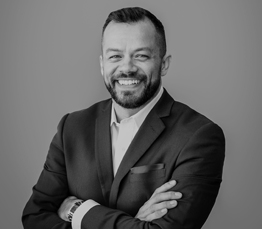
Panel Moderator
Rodrigo Ribeiro
Managing Partner
View Recording
Session 1: Cultural Quotient
Now more than ever, best-practice organizations must understand how diversity, culture, and emotional intelligence coalesce for leaders to advance cultures of belonging to draw better outcomes. We will identify how cultural, DEI, and business competencies impact who we as leaders perceive as “high potential” and ultimately value in the workplace. Leaders will progressively explore these dimensions through the sessions and identify key actions to build a culture of belonging.
Title: “Who are you?”: Building a Globally Inclusive Culture
Summary: We are more connected than ever. Global work teams and working with colleagues from diverse cultural backgrounds are common experiences with unique requirements. In this session, we will discuss how we can flex our cultural styles in order to create an inclusive workplace where each person feels respected, valued, and able to contribute their best.
Session goals / approach:
- Goal- Include CQ in their thinking of DEI.
- Takeaways:
- Shift the lens to view culture and ethnicity as a component of DEI
- Understand that leaders can and must flex styles
- Begin to learn to flex styles along three dimensions of culture: hierarchy, communication, and relationship
- Takeaways:
- Introductory comments (5 min)
- How does country culture intersect with diversity, equity, and inclusion?
- Race and ethnicity (culture)
- Religion
- Define a global culture of belonging
- How does country culture intersect with diversity, equity, and inclusion?
- Introductions (3 min per)-
- a little about who the panelists are, particularly their stories of how they came to be who they are
- Understand how cultural dimensions of communication, relationship, hierarchy impact the way you lead and manage in a global work team
- Storytelling: Provide a scenario to introduce the session and show how different people may perceive the same situation differently…have speakers share real-world examples
- Break it down:
- Diverse cultural tributaries and factors with pronounced variations
- How does that “show up”
- Understand that individuals are multi-dimensional in how they identify, and “one size does not fit all” when it comes to leadership styles
- Explore the challenges of leading a global, diverse team. How do people show up differently?
- How do you lead differently?
- Facilitative versus directive leadership
- What is your expectation of the team’s participation in meetings? What is their expectation of you as a leader?
- What meeting norms do you set for global teams?
- A story about what this looks like practically.
- Implied and contextualized versus explicit and minimal communication?
- Trust Equation: Build the credit before trying to cash it in.
- The intersection of personal, national, and corporate cultures. How do you recognize and then navigate the dissonance and difficulties that arise?
- Culture impacts the survey and data inputs which, in turn, impacts the outputs. (Gallup data)
- Drill down to leverage leadership: giving feedback content.
- Facilitative versus directive leadership
- How do you lead differently?
- Wrap up:
- What do you think is key in advancing globally inclusive cultures?
- How do you find CQ play out in the current work and political environment
- Content in system:
- GoWorldWise - Relationship/Hierarchy/Communication
Featured Speakers:
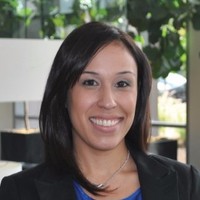
Erika Gonzalez Mercedes
Diversity Business Partner, Facebook
Erika has a diverse background in Marketing, Procurement, and e-Commerce. Before joining Audible, she spent seven years at Wyndham Worldwide in various positions across business units and leading diversity and inclusion initiatives. Formerly, Erika has held roles as an analyst and manager at Wakefern Food Corporation and Liberty Mutual Insurance Company. She is an active participant in nonprofit organizations. She has served as a board member for Prospanica (National Society of Hispanic MBAs)- New Jersey chapter, Morris County Diversity and Inclusion Committee chair for the Society for Human Resource Management, volunteer for the Big Brothers Big Sisters program, and serves as a mentor in her community for young professionals. She has also been recognized as a HACR Young Hispanic Corporate Achiever™ from the Hispanic Association on Corporate Responsibility.
Erika is a graduate of The College of New Jersey, where she received a BS in Business Administration Marketing and later obtained an MBA in Healthcare Administration from Seton Hall University. She also completed the Executive Education for Sustainability Leadership at Harvard T.H. Chan School of Public Health. Erika currently resides in New Jersey with her husband, Enmanuel, and their sons, Adrian and Erik.
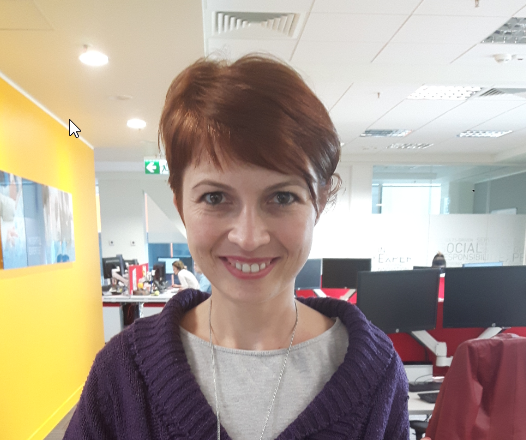
Alina Buhna
Senior Director, ADP UK Implementation
Alina brings to ADP a strong experience in both management and project management, acquired both through her education in the University of Economic Studies in Bucharest, Romania and in Oracle, where she spent 9 years before joining ADP.
Before being a member of the senior leadership team in the UK, Alina was part of the senior leadership team in ADP’s CoE in Bucharest, Romania, where she run the teams supporting several European countries (France, Italy, Germany, Switzerland) for Payroll & HR Implementation activities but also for Service activities. During her 5 years’ CoE experience, herself and her teams had important accomplishments by working together with the BU-s they were supporting. She managed to lead her teams to success by supporting customer satisfaction growth initiatives, cross-country standardization of processes, RPA automation and also by empowering the people in her organization to make their voice heard, to grow and dare to challenge the status quo.
She strongly believes in teamwork and in a culture where everybody brings her or his own contribution to a common objective and where everybody feels included.
Alina speaks French and English fluently, Italian at an intermediate level and owns a PMP certification since April 2015.
She has two sons, 8 and 10 years old and is passionate about garden plants and gardening design.
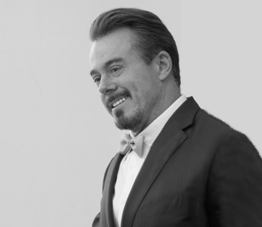
Panel Moderator
Stephan M. Branch
President and CEO
View Recording
SERIES II SESSION 5:
Exploring the Dimension of Diversity Through Data and People:
Transforming Our MARKETPLACE
Since the 1960s, organizations have been reporting data on race and gender via the EEOC and AAP to help drive informed decisions and set policy. We display data in a binary way – black or white, male or female, gay or straight, old or young, wealthy or poor. Yet today, we talk about living in the "age of data." We may know how many blacks or women under the age of 23 live in a particular country, but there is a lot more that shapes diversity. Even with the concept of intersectionality, which describes two-dimensions, such as black and female, it is not easy to find research and data. It is nearly impossible to find data once the dimensions of diversity become even more complicated, such as black and female and gay and GenY.
Join us for JUSTWise Talk Series II that explores the framework for discussing and measuring people’s complex multi-dimensions today. If we do not have the framework, how are corporations and policy setters creating fact-based and data-based policies and programs? And how do we ensure that the people with converging dimensions are being represented and understood?
In this session, we will explore how diversity data, generational trends, and anticipating “what’s next” drive trillions of dollars in product revenue every year. Join us for an interactive discussion with current shakers and movers who are transforming the image of many corporate brands and the marketplace through the lens of diversity and inclusion. Learn how to tap into niche markets, expand your customer base, increase engagement for repeat business, and expand the impact of your product. Most importantly, learn from powerful consumer branding techniques to help transform your employer branding approach.
We will:
- Discuss what Human Resources and Diversity & Inclusion need to learn from the Marketing functions
- Debate why diversity and inclusion are such a powerful driver of purchasing decisions and brand loyalty
- Learn how to expand beyond gender and ethnic targeting to true long-term engagement with your customers
- Take away best practices on transforming powerful corporate and consumer brands into employer brands
Featured Speakers:

Afiya Addison
Global Program Manager, The B2B Institute at LinkedIn
Through delivering educational and inspirational content in a meeting room or on the main stage, Afiya aims to help women and all professionals develop what it takes to become successful in tech, advertising, and all forms of media. Afiya has spoken at Social Media Week in NYC, Obility's Marketing Loves Sales, TSP Live, Hootsuite's Social Breakfast, Linkedln’s TransformHER conference, and various ad agencies and ad-tech companies across the country.

Anjali Soares
Director of Business Development, The Phluid Project
Anjali has been instrumental in the growth of The Phluid Project, a leader in gender-free fashion. Phluid joins a global movement of freedom, authenticity, and self-expression and leads with values, a strong community, and a fearlessness to challenge the status quo. Phluid thoughtfully expands into new spaces where they can offer insight, education, and impact.
She has been spearheading Business Development, working to realize wholesale partnerships with majors such as Macy's, Bloomingdales, Target, Urban Outfitters, Nordstroms, Saks Off 5th, and Sephora. Non-wholesale partnerships include P&G, Showtime, Steve Madden, HBO, Smirnoff, Happy Socks, Mattel, Fila, Champion, and WWD, to name a few.
Alongside the Founder and Director of Education, Anjali manages the GET Phluid Education platform, which has educated businesses of all sizes in varied industries, including Bloomberg LLP., Amex, RueLaLa, Verizon Media, Saks Off 5th, and Primark.
She has been very passionate about social justice, which led her to her appointment as Assistant Secretary and Treasurer of The Phluid foundation, the charitable arm of The Phluid Project. During her tenure, the brand has partnered with foundations such as Born This Way Foundation (Lady Gaga), Athlete Ally, and HMI to identify charitable opportunities and other ways to give back to the underserved.
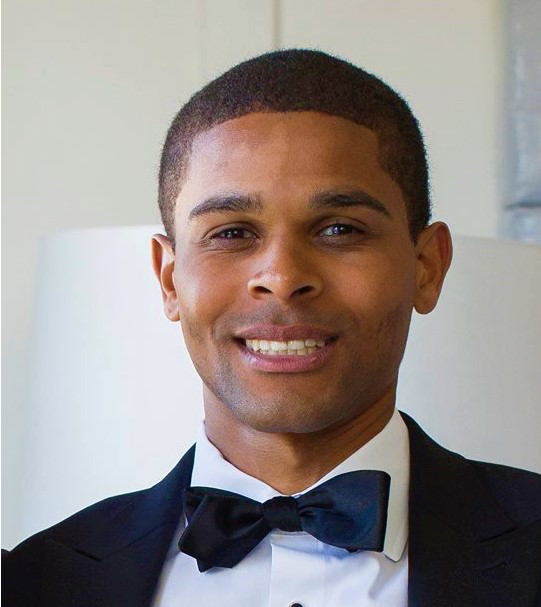
Larry A. Slaughter
Sales Leader, LinkedIn
Prior to LinkedIn, Larry assisted large-scale utility clients as an Accenture Technology Consultant through various digital transformation, customer experience & advanced metering infrastructure initiatives. Outside of work, Larry Co-Chairs the U.S. Soccer Foundation’s Young Professionals Council (YPC) - a diverse group of young professionals who volunteer their time, skills, networks, and resources to support the Foundation's local programs and national initiatives. The YPC leads efforts to build and strengthen a community that bonds over its shared love of soccer and its mission to provide quality soccer programming and safe places to play for children in underserved communities across the country. Larry holds a Bachelor of Science (B.S.) in Mechanical & Aerospace Engineering from Cornell University & currently resides in Brooklyn, NY.
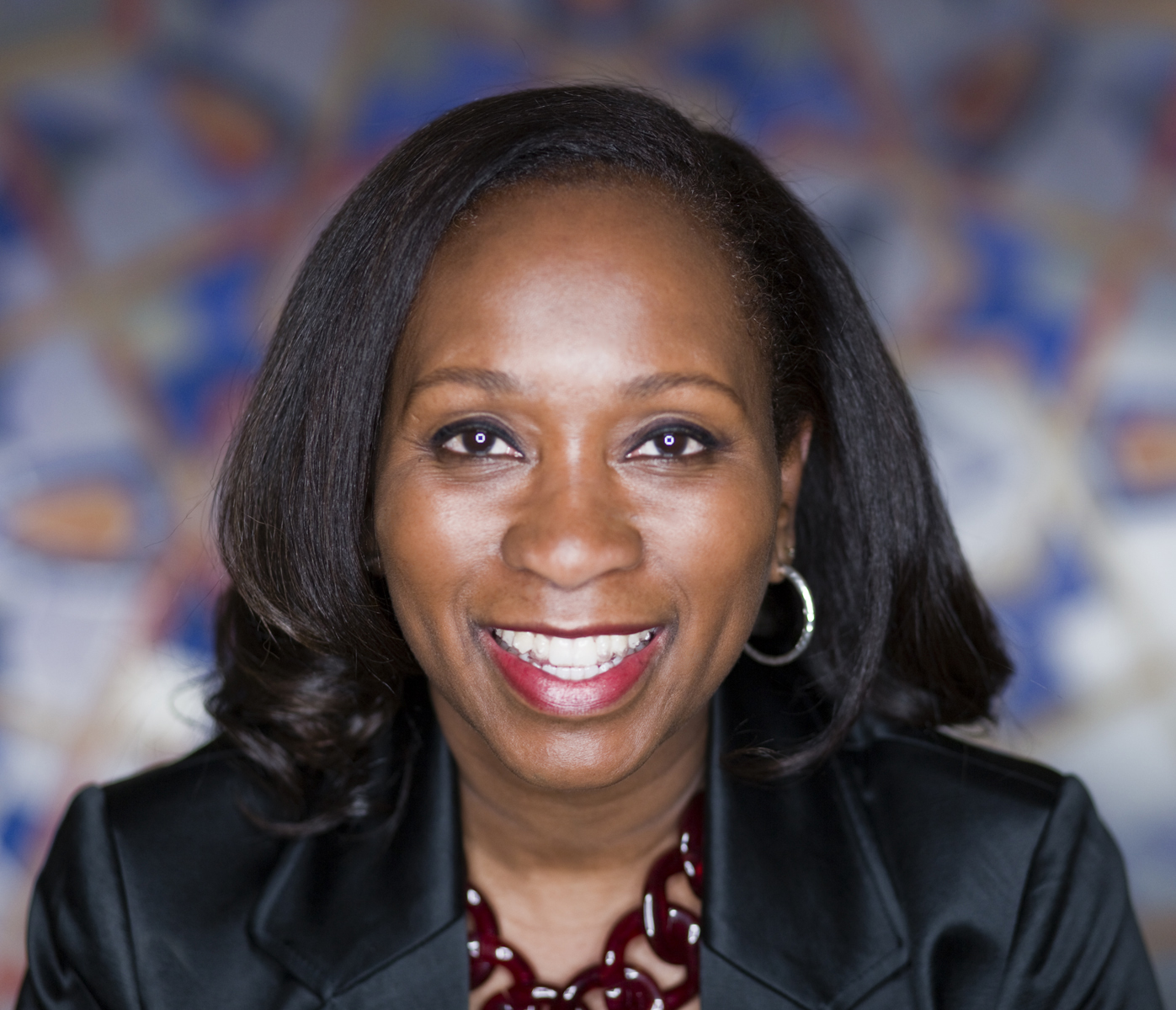
Lisa Farrow
Agile Coach and Scrum Master, National Basketball Association
Being passionate about continuous improvement, Lisa augmented her marketing skills with formal Agile project management study and practice. She holds multiple Agile certifications – Certified SAFe Agilist, Certified SAFe Scrum Master, and Certified SAFe Product Owner/Product Manager. Most recently, Lisa has coached over 18 American Express Agile marketing teams and delivered Agile training to marketing professionals across multiple companies.
Lisa has an undergraduate degree in Computer Science from Pace University and her MBA in Marketing from New York University. She strongly believes in the benefits of using Agile, including improved time to market, optimized team operations, and, more importantly, improved customer experience. Her mission is to teach and support teams looking for greater efficiency using Agile project management frameworks.
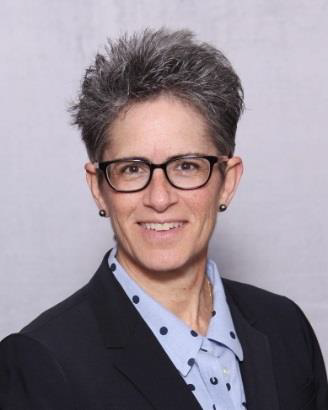
Panel Moderator
Patricia A. Lee
President & Founder, P.A.L. Coaching & Consulting
- Coaching of hi-potentials, diverse talent, and teams to achieve top performance and potential, and through career transitions.
- Providing high-impact solutions in human resources, organizational effectiveness, learning & leadership development, diversity & inclusion, change, and culture.
Prior to that, she served as senior vice president, human resources, and chief diversity officer for Wyndham Worldwide, where she was responsible for corporate human resources, enterprise human resources strategy, talent acquisition, leadership education, organizational effectiveness, and diversity & inclusion, garnering the #24 spot in DiversityInc listing. Prior to this role, she was vice president, organizational effectiveness at RCI, another Wyndham company, where she championed "Topgrading," aligning talent with business imperatives. Prior to joining RCI, Ms. Lee served as vice president, human resources for Liberty Travel and GOGO Worldwide Vacations Inc, where she obtained proven results in the areas of organizational capability, learning & development, and employee relations. In addition, Ms. Lee spent 12 years at Unilever Bestfoods North America, where she held various human resources positions, including human resources, organizational capability, staffing, training and development, and compensation. She began her career with KPMG Peat Marwick.
Ms. Lee is a member of N.J. State Advisory Board of Education at Rutgers University and serves on the Board of Trustees at NewBridge Services, Inc. leading their Governance Committee. As a former Board Member and Board President for Jersey Battered Women's Services (JBWS), she is now serving in an advisory capacity for JBWS after raising more than $1.2M in less than six months for their capital campaign. She was a member of both the International Tourism Partnership and the Morris County Chamber of Commerce, serving on the Board of Directors.
A recognized expert, Ms. Lee has been a featured speaker in Hotel Management News ("View From the Top: 2020 Vision on Leadership", 4/2020) and named one of the Most Influential Women of the Year, 2018 and 2019. She delivered the commencement address as the Keynote for Rutgers University, School of HR Management & Labor Relations, Piscataway, NJ celebrating the 25th graduating class in 2019. She has received the Humanitarian of the Year Award from JBWS, Exemplary Leadership from Morris County, and the Most Distinguished Service Award from The Senate and General Assembly of NJ.
Ms. Lee holds a Bachelor's degree in Classics from Lehigh University in Bethlehem, Pa. and a Master's degree in Human Resource Management and Labor Relations from Rutgers University in New Brunswick, N.J. She also received executive Master's degrees from Rutgers University and Wharton School of Business in Philadelphia, Pa. A New Jersey native, Ms. Lee lives in West Caldwell with her wife of 30 years, Marie, and their rescue cat Nikki.
View Recording
SERIES II SESSION 4:
Exploring the Dimension of Diversity Through Data and People:
A Focus on LGBTQ+
Since the 1960s, organizations have been reporting data on race and gender via the EEOC and AAP to help drive informed decisions and set policy. We display data in a binary way – black or white, male or female, gay or straight, old or young, wealthy or poor. Yet today, we talk about living in the "age of data." We may know how many blacks or women under the age of 23 live in a particular country, but there is a lot more that shapes diversity. Even with the concept of intersectionality, which describes two-dimensions, such as black and female, it is not easy to find research and data. It is nearly impossible to find data once the dimensions of diversity become even more complicated, such as black and female and gay and GenY.
Join us for JUSTWise Talk Series II that explores the framework for discussing and measuring people’s complex multi-dimensions today. If we do not have the framework, how are corporations and policy setters creating fact-based and data-based policies and programs? And how do we ensure that the people with converging dimensions are being represented and understood?
In this session, we will have an interactive discussion with LGBTQ+ diversity & equity thought leaders to focus on how the LGBTQ+ community should be counted so that data best represents the rainbow of differences, gain their perspectives on the definition of diversity, and the impact of data on policy and programs.
We will:
- Debate how the “gay/straight” label translates into the meaning of LGBTQ+ descriptors
- Explore how data represents, or not, the complexity within the LGBTQ+ community; and why it matters
- Discuss why the diversity within the LGBTQ+ community may confuse would-be allies
- Share approaches to increase LGBTQ+ participation in the so-called “mainstream”
Featured Speakers:
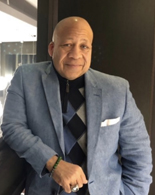
Victor Simmons
Vice President, HR and Head of DE&I, Ace Hotel Group
Victor’s current role is the Vice President of Human Resources and Head of Diversity, Equity & Inclusion for Atelier Ace, a leading player in lifestyle hospitality brands. He was recently brought on to implement and execute HR and DEI strategy and structure encompassing employees spread across hotels in major U.S. cities and Japan while expanding into new destinations to be announced soon.
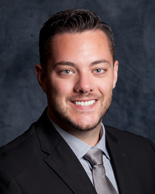
Ryan A. H. Weyandt
CEO, LGBTQ+ Real Estate Alliance
Ryan served nearly a decade in the lending and financial services industry, most of which as a Private Mortgage Banker and Loan Officer with Wells Fargo and, most recently, a Loan Officer with U.S. Bank in the Twin Cities. He also launched RAW Insight, an organizational development consulting firm. Before his lending career, Ryan held various senior roles with firms in operations and event management. He has served on the Minnesota Realtors Diversity and Inclusion Committee and previously led the NAGLREP Foundation, along with being a past-President of that organization's Minneapolis chapter for multiple years. The University of St. Thomas grad completed his Masters' work in Organizational Leadership from St. Catherine University.
Ryan is happily married to his husband, Michael, since New Year's Eve 2019/2020. They live in St. Paul, Minnesota but enjoy traveling to the extent their schedules allow.

Sabrina Gill Kent
SVP, National LGBT Chamber of Commerce (NGLCC)
In January 2019, Sabrina was recognized by Business Equality Magazine as a Top 40 LGBT Leader Under 40 and was named to the Board of Directors of Q Street, and an organization focused on supporting LGBT advocates and lobbyists in Washington, DC. In June 2020, Sabrina was named to the inaugural Crain’s New York Business list of Notable LGBTQ Leaders & Executives. Sabrina was welcomed back to Team NGLCC in May 2015 after receiving her B.A. in Philosophy and Sexuality, Women’s & Gender Studies from Rollins College in Winter Park, Florida, where her interest in LGBT advocacy work collided with her campus involvement and courses of study.
Sabrina was named the 2014 Sojourner Truth Awardee for Combined Academic and Activist work by the Rollins College Sexuality, Women’s & Gender Studies Executive Committee, and served as Editor-in-Chief of The Independent magazine, a 2015 Columbia Press Association Gold Crown Award recipient.

Panel Moderator
Patricia A. Lee
President & Founder, P.A.L. Coaching & Consulting
- Coaching of hi-potentials, diverse talent, and teams to achieve top performance and potential, and through career transitions.
- Providing high-impact solutions in human resources, organizational effectiveness, learning & leadership development, diversity & inclusion, change, and culture.
Prior to that, she served as senior vice president, human resources, and chief diversity officer for Wyndham Worldwide, where she was responsible for corporate human resources, enterprise human resources strategy, talent acquisition, leadership education, organizational effectiveness, and diversity & inclusion, garnering the #24 spot in DiversityInc listing. Prior to this role, she was vice president, organizational effectiveness at RCI, another Wyndham company, where she championed "Topgrading," aligning talent with business imperatives. Prior to joining RCI, Ms. Lee served as vice president, human resources for Liberty Travel and GOGO Worldwide Vacations Inc, where she obtained proven results in the areas of organizational capability, learning & development, and employee relations. In addition, Ms. Lee spent 12 years at Unilever Bestfoods North America, where she held various human resources positions, including human resources, organizational capability, staffing, training and development, and compensation. She began her career with KPMG Peat Marwick.
Ms. Lee is a member of N.J. State Advisory Board of Education at Rutgers University and serves on the Board of Trustees at NewBridge Services, Inc. leading their Governance Committee. As a former Board Member and Board President for Jersey Battered Women's Services (JBWS), she is now serving in an advisory capacity for JBWS after raising more than $1.2M in less than six months for their capital campaign. She was a member of both the International Tourism Partnership and the Morris County Chamber of Commerce, serving on the Board of Directors.
A recognized expert, Ms. Lee has been a featured speaker in Hotel Management News ("View From the Top: 2020 Vision on Leadership", 4/2020) and named one of the Most Influential Women of the Year, 2018 and 2019. She delivered the commencement address as the Keynote for Rutgers University, School of HR Management & Labor Relations, Piscataway, NJ celebrating the 25th graduating class in 2019. She has received the Humanitarian of the Year Award from JBWS, Exemplary Leadership from Morris County, and the Most Distinguished Service Award from The Senate and General Assembly of NJ.
Ms. Lee holds a Bachelor's degree in Classics from Lehigh University in Bethlehem, Pa. and a Master's degree in Human Resource Management and Labor Relations from Rutgers University in New Brunswick, N.J. She also received executive Master's degrees from Rutgers University and Wharton School of Business in Philadelphia, Pa. A New Jersey native, Ms. Lee lives in West Caldwell with her wife of 30 years, Marie, and their rescue cat Nikki.
View Recording
SERIES II SESSION 3:
Exploring the Dimension of Diversity Through Data and People:
Transforming Our WORKPLACE
Since the 1960s, organizations have been reporting data on race and gender via the EEOC and AAP to help drive informed decisions and set policy. We display data in a binary way – black or white, male or female, gay or straight, old or young, wealthy or poor. Yet today, we talk about living in the "age of data." We may know how many blacks or women under the age of 23 live in a particular country, but there is a lot more that shapes diversity. Even with the concept of intersectionality, which describes two-dimensions, such as black and female, it is not easy to find research and data. It is nearly impossible to find data once the dimensions of diversity become even more complicated, such as black and female and gay and GenY.
Join us for JUSTWise Talk Series II that explores the framework for discussing and measuring people’s complex multi-dimensions today. If we do not have the framework, how are corporations and policy setters creating fact-based and data-based policies and programs? And how do we ensure that the people with converging dimensions are being represented and understood?
In this session, we will have an interactive discussion with organizational leaders who leverage data and storytelling to shape today's workplaces and readying them for the future. From recruitment to retention and more, learn how organizations ensure high levels of engagement from marginalized talent.
We will:
- Discuss how the events of 2020, including Black Lives Matter, a Pandemic, and the election of Joe Biden, have shaped our workplaces in 2021 and beyond
- Explore what organizations are doing to embrace the multi-dimensions of talent and drive towards equity and inclusion
- Understand how you use data and storytelling to drive your employer brand and engagement
- Share best practices that are shaping the way we attract and retain talent
Featured Speakers:
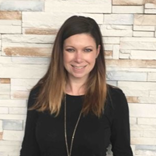
Kate Klingman-Velardo
Director, Employer Brand & Marketing, ADP
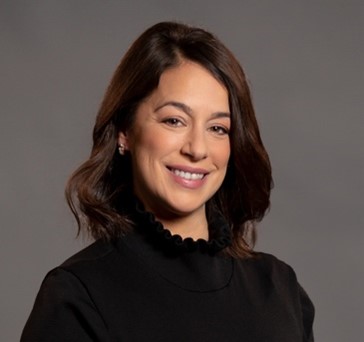
Tanya Reu-Narvaez
Chief People Officer, Realogy
Reu has served Realogy for 18 years and, prior to her role as chief people officer, was senior vice president of Human Resources for the Realogy Brokerage Group (RBG) and Realogy Franchise Group (RFG) business units, which include franchise and company-owned brands such as Better Homes and Gardens®, CENTURY 21®, Coldwell Banker®, Corcoran®, ERA ®and Sotheby’s International Realty®. While in this role, she also held HR leadership responsibility for Realogy’s core businesses and led a comprehensive, results-driven HR function that focused on strategic talent initiatives to drive business objectives.
Reu has led diversity & inclusion efforts for the RBG and RFG business units and is a founding member of Realogy’s Diversity & Inclusion Council. She oversees Realogy’s partnerships with professional diversity organizations, including the National Association of Hispanic Real Estate Professionals (NAHREP), the Asian Real Estate Association of America (AREAA), the LGBTQ+ Real Estate Alliance, the National Association of Real Estate Brokers (NAREB) and woman.
She is a current member and former chair of NAHREP’s Corporate Board of Governors and is a former national board member of AREAA and Big Brothers Big Sisters of Northern New Jersey.
Reu has received numerous accolades throughout her career, including NAHREP’s inaugural Ernest J. Reyes Founders Award for her work in advancing Hispanic homeownership. She has also been included in the Top 20 Women of Influence in Housing list published by HousingWire and was named a Woman Worth Watching by the Profiles in Diversity Journal.
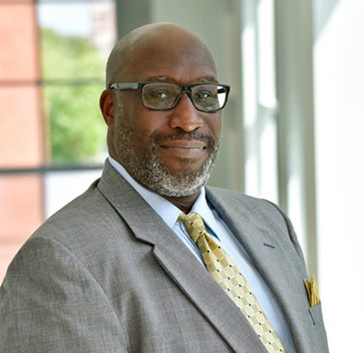
Patrick F. McKay
Stanley and Franny Wang Professor of Human Resource Management, Temple University

Panel Moderator
Patricia A. Lee
President & Founder, P.A.L. Coaching & Consulting
- Coaching of hi-potentials, diverse talent, and teams to achieve top performance and potential, and through career transitions.
- Providing high-impact solutions in human resources, organizational effectiveness, learning & leadership development, diversity & inclusion, change, and culture.
Prior to that, she served as senior vice president, human resources, and chief diversity officer for Wyndham Worldwide, where she was responsible for corporate human resources, enterprise human resources strategy, talent acquisition, leadership education, organizational effectiveness, and diversity & inclusion, garnering the #24 spot in DiversityInc listing. Prior to this role, she was vice president, organizational effectiveness at RCI, another Wyndham company, where she championed "Topgrading," aligning talent with business imperatives. Prior to joining RCI, Ms. Lee served as vice president, human resources for Liberty Travel and GOGO Worldwide Vacations Inc, where she obtained proven results in the areas of organizational capability, learning & development, and employee relations. In addition, Ms. Lee spent 12 years at Unilever Bestfoods North America, where she held various human resources positions, including human resources, organizational capability, staffing, training and development, and compensation. She began her career with KPMG Peat Marwick.
Ms. Lee is a member of N.J. State Advisory Board of Education at Rutgers University and serves on the Board of Trustees at NewBridge Services, Inc. leading their Governance Committee. As a former Board Member and Board President for Jersey Battered Women's Services (JBWS), she is now serving in an advisory capacity for JBWS after raising more than $1.2M in less than six months for their capital campaign. She was a member of both the International Tourism Partnership and the Morris County Chamber of Commerce, serving on the Board of Directors.
A recognized expert, Ms. Lee has been a featured speaker in Hotel Management News ("View From the Top: 2020 Vision on Leadership", 4/2020) and named one of the Most Influential Women of the Year, 2018 and 2019. She delivered the commencement address as the Keynote for Rutgers University, School of HR Management & Labor Relations, Piscataway, NJ celebrating the 25th graduating class in 2019. She has received the Humanitarian of the Year Award from JBWS, Exemplary Leadership from Morris County, and the Most Distinguished Service Award from The Senate and General Assembly of NJ.
Ms. Lee holds a Bachelor's degree in Classics from Lehigh University in Bethlehem, Pa. and a Master's degree in Human Resource Management and Labor Relations from Rutgers University in New Brunswick, N.J. She also received executive Master's degrees from Rutgers University and Wharton School of Business in Philadelphia, Pa. A New Jersey native, Ms. Lee lives in West Caldwell with her wife of 30 years, Marie, and their rescue cat Nikki.
View Recording
SERIES II SESSION 2:
Exploring the Dimension of Diversity Through Data and People:
Generational Perspectives
Generational Perspectives
Since the 1960s, organizations have been reporting data on race and gender via the EEOC and AAP to help drive informed decisions and set policy. We display data in a binary way – black or white, male or female, gay or straight, old or young, wealthy or poor. Yet today, we talk about living in the “age of data.” We may know how many blacks or women under the age of 23 live in a particular country, but there is a lot more that shapes diversity. Even with the concept of intersectionality, which describes two-dimensions, such as black and female, it is not easy to find research and data. And it is near impossible to find data once the dimensions of diversity become even more complicated, such as black and female and gay and GenY.
Join us for JUSTWise Talk Series II that explores the framework for discussing and measuring people’s complex multi-dimensions today. If we do not have the framework, how are corporations and policy setters creating fact-based and data-based policies and programs? And how do we ensure that the people with converging dimensions are being represented and understood?
In this session, we will have an interactive discussion with Gen X, Y, and Z diversity & equity leaders to gain their generational perspectives on the definition of diversity, why each generation has a new and different lens and their insights on the impact of data on policy and programs in their future.
We will:
- Gain a generational perspective on diversity, equity, and inclusion
- Discuss how diversity influences or impedes the ability to live an authentic life
- Explore ways in which the complexity of data influences our leaders and their thoughts on the future
- Understand the hopes and dreams of our future diverse leaders
Featured Speakers:

Jordan Thomas
Rhodes Scholar, Chief of Staff to Ray Chambers of the World Health Organization, and Board of Directors PALCUS
As one of 32 American students selected from a pool of over 2,500 applicants to receive a 2018 Rhodes Scholarship -- the first Rhodes Scholar in the history of the Newark Public Schools system -- Jordan completed a year of postgraduate study at the University of Oxford. He spent this year pursuing a Master's degree in Evidence-Based Social Intervention and Policy Evaluation.
Jordan is currently serving as Chief of Staff to philanthropist Ray Chambers, supporting a range of impact initiatives that span the work of Wesray Social Investments LP, the MCJ Amelior Foundation, and Mr. Chambers' role as the WHO Ambassador for Global Strategy. At the conclusion of this role, Jordan will enroll at both Yale Law School and Harvard Business School for a unique JD/MBA dual degree between the two institutions. Ultimately, he intends to engage in work that most directly promotes equal opportunity, social mobility, and justice for all.

Erika Gonzalez Mercedes
Diversity Business Partner, Facebook
Erika has a diverse background in Marketing, Procurement, and e-Commerce. Before joining Audible, she spent seven years at Wyndham Worldwide in various positions across business units and leading diversity and inclusion initiatives. Formerly, Erika has held roles as an analyst and manager at Wakefern Food Corporation and Liberty Mutual Insurance Company. She is an active participant in nonprofit organizations. She has served as a board member for Prospanica (National Society of Hispanic MBAs)- New Jersey chapter, Morris County Diversity and Inclusion Committee chair for the Society for Human Resource Management, volunteer for the Big Brothers Big Sisters program, and serves as a mentor in her community for young professionals. She has also been recognized as a HACR Young Hispanic Corporate Achiever™ from the Hispanic Association on Corporate Responsibility.
Erika is a graduate of The College of New Jersey, where she received a BS in Business Administration Marketing and later obtained an MBA in Healthcare Administration from Seton Hall University. She also completed the Executive Education for Sustainability Leadership at Harvard T.H. Chan School of Public Health. Erika currently resides in New Jersey with her husband, Enmanuel, and their sons, Adrian and Erik.
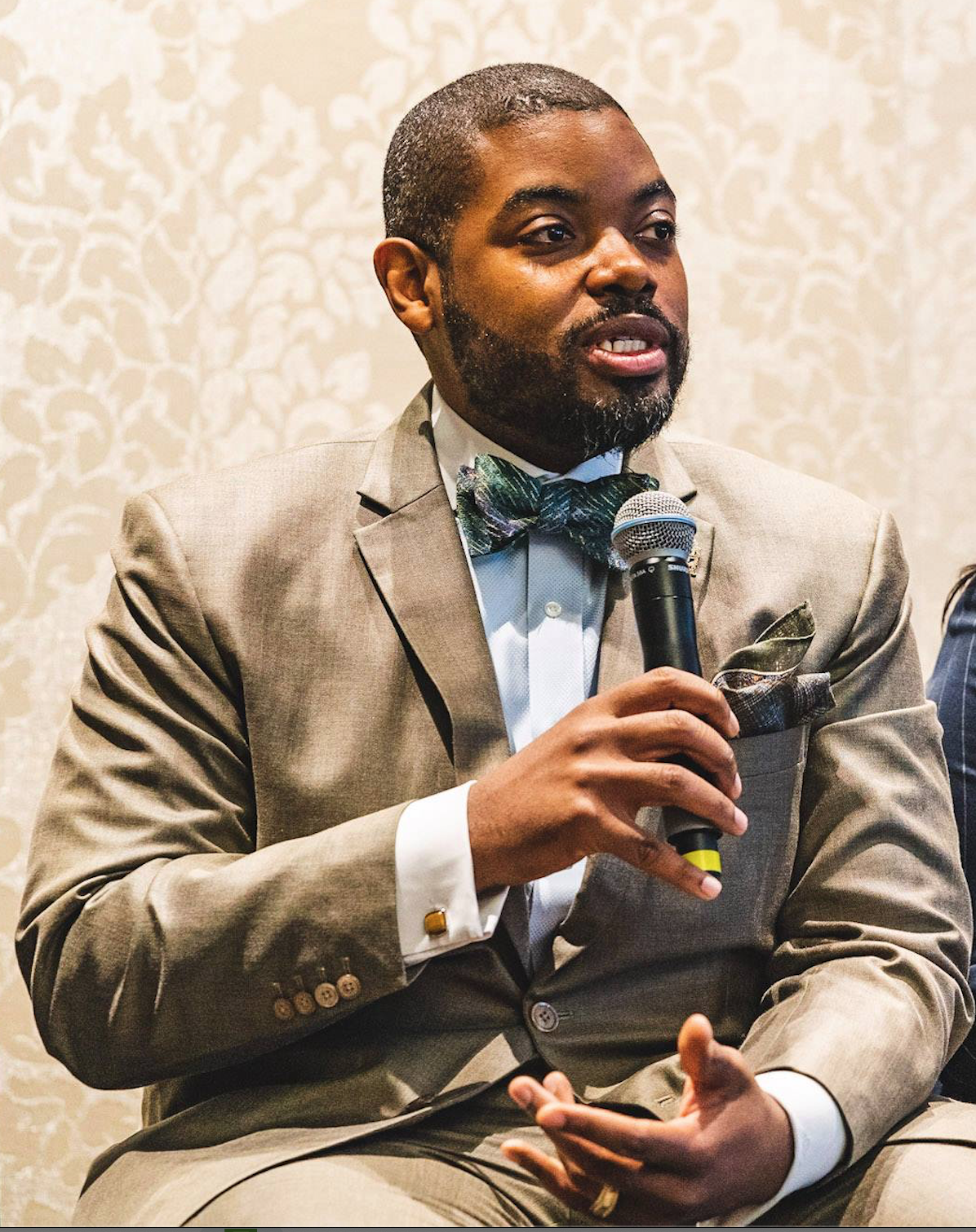
Omari Head
Founder, National Institute of Lodging Education
While working full-time as a hospitality manager, he began teaching at Prince George Community College and found a love for higher education through hospitality. Omari currently teaches for Cheyney University and other institutions at both the undergraduate and graduate levels. Omari has served as a speaker for the National Association of Black Hotel Owners Operators and Developers (“NABHOOD”) and Latino Hotel Association. He has also been an invited speaker for Cornell University, Multicultural Foodservice & Hospitality Alliance, and American Hotel & Lodging Association.
With roots on the Southside of Chicago, His family has deeper hospitality roots, with his great grandmother working as a housekeeper downtown Chicago. Like many industries, wealth and growth are achieved with the labor and sacrifices of people of color. However, there continue to be few Black Latino / Latinx-owned hotels. This led to the formation of the National Institute of Lodging Education. The nonprofit's focus is to share information and disseminate education related to hotel ownership targeted at these populations.
Omari holds a bachelor’s degree in hospitality administration from the University of Nevada Las Vegas. He is the Founder of the National Institute of Lodging Education and co-founder of NextGen in Lodging, a Lifetime member of NABHOOD and Alpha Phi Alpha Fraternity Incorporated. Omari has served as a contributor for Hotel News Now and IHMRS SmartBrief. He was recognized by Washington DC radio station WKYS and Hotel Management Magazine as a top young professional. He resides in Washington DC with his partner and their two children.

Panel Moderator
Patricia A. Lee
President & Founder, P.A.L. Coaching & Consulting
- Coaching of hi-potentials, diverse talent, and teams to achieve top performance and potential, and through career transitions.
- Providing high-impact solutions in human resources, organizational effectiveness, learning & leadership development, diversity & inclusion, change, and culture.
Prior to that, she served as senior vice president, human resources, and chief diversity officer for Wyndham Worldwide, where she was responsible for corporate human resources, enterprise human resources strategy, talent acquisition, leadership education, organizational effectiveness, and diversity & inclusion, garnering the #24 spot in DiversityInc listing. Prior to this role, she was vice president, organizational effectiveness at RCI, another Wyndham company, where she championed "Topgrading," aligning talent with business imperatives. Prior to joining RCI, Ms. Lee served as vice president, human resources for Liberty Travel and GOGO Worldwide Vacations Inc, where she obtained proven results in the areas of organizational capability, learning & development, and employee relations. In addition, Ms. Lee spent 12 years at Unilever Bestfoods North America, where she held various human resources positions, including human resources, organizational capability, staffing, training and development, and compensation. She began her career with KPMG Peat Marwick.
Ms. Lee is a member of N.J. State Advisory Board of Education at Rutgers University and serves on the Board of Trustees at NewBridge Services, Inc. leading their Governance Committee. As a former Board Member and Board President for Jersey Battered Women's Services (JBWS), she is now serving in an advisory capacity for JBWS after raising more than $1.2M in less than six months for their capital campaign. She was a member of both the International Tourism Partnership and the Morris County Chamber of Commerce, serving on the Board of Directors.
A recognized expert, Ms. Lee has been a featured speaker in Hotel Management News ("View From the Top: 2020 Vision on Leadership", 4/2020) and named one of the Most Influential Women of the Year, 2018 and 2019. She delivered the commencement address as the Keynote for Rutgers University, School of HR Management & Labor Relations, Piscataway, NJ celebrating the 25th graduating class in 2019. She has received the Humanitarian of the Year Award from JBWS, Exemplary Leadership from Morris County, and the Most Distinguished Service Award from The Senate and General Assembly of NJ.
Ms. Lee holds a Bachelor's degree in Classics from Lehigh University in Bethlehem, Pa. and a Master's degree in Human Resource Management and Labor Relations from Rutgers University in New Brunswick, N.J. She also received executive Master's degrees from Rutgers University and Wharton School of Business in Philadelphia, Pa. A New Jersey native, Ms. Lee lives in West Caldwell with her wife of 30 years, Marie, and their rescue cat Nikki.
View Recording
SERIES II SESSION 1:
Exploring the Dimension of Diversity Through Data and People:
The Complexity of People
The Complexity of People Through Stories
Since the 1960s, organizations have been reporting data on race and gender via the EEOC and AAP to help drive informed decisions and set policy. We display data in a binary way – black or white, male or female, gay or straight, old or young, wealthy or poor. Yet today, we talk about living in the “age of data.” We may know how many blacks or women under the age of 23 live in a particular country, but there is a lot more that shapes diversity. Even with the concept of intersectionality, which describes two-dimensions, such as black and female, it is not easy to find research and data. And it is near impossible to find data once the dimensions of diversity become even more complex, such as black and female and gay and GenY.
Join us for JUSTWise Talk Series II that explores the framework for discussing and measuring people’s complex multi-dimensions today. If we do not have the framework, how are corporations and policy setters creating fact-based and data-based policies and programs? And how do we ensure that the people with converging dimensions are being represented and understood?
In this session, we will have an interactive discussion with global thought leaders on diversity & equity as they tell their personal diversity journey and experiences, the impact of diversity on them and their families, their thoughts on the complexity of diversity data, and the power of data on policy and programs.
We will:
- Hear real people describe their dimensions of diversity through their personal stories
- Explore the impact of living in a binary world on those who are living a non-binary life
- Discuss the importance and relevance of collecting and reporting accurate data
- Debate the power of data in shaping diversity strategy, policy, and programs
Featured Speakers:
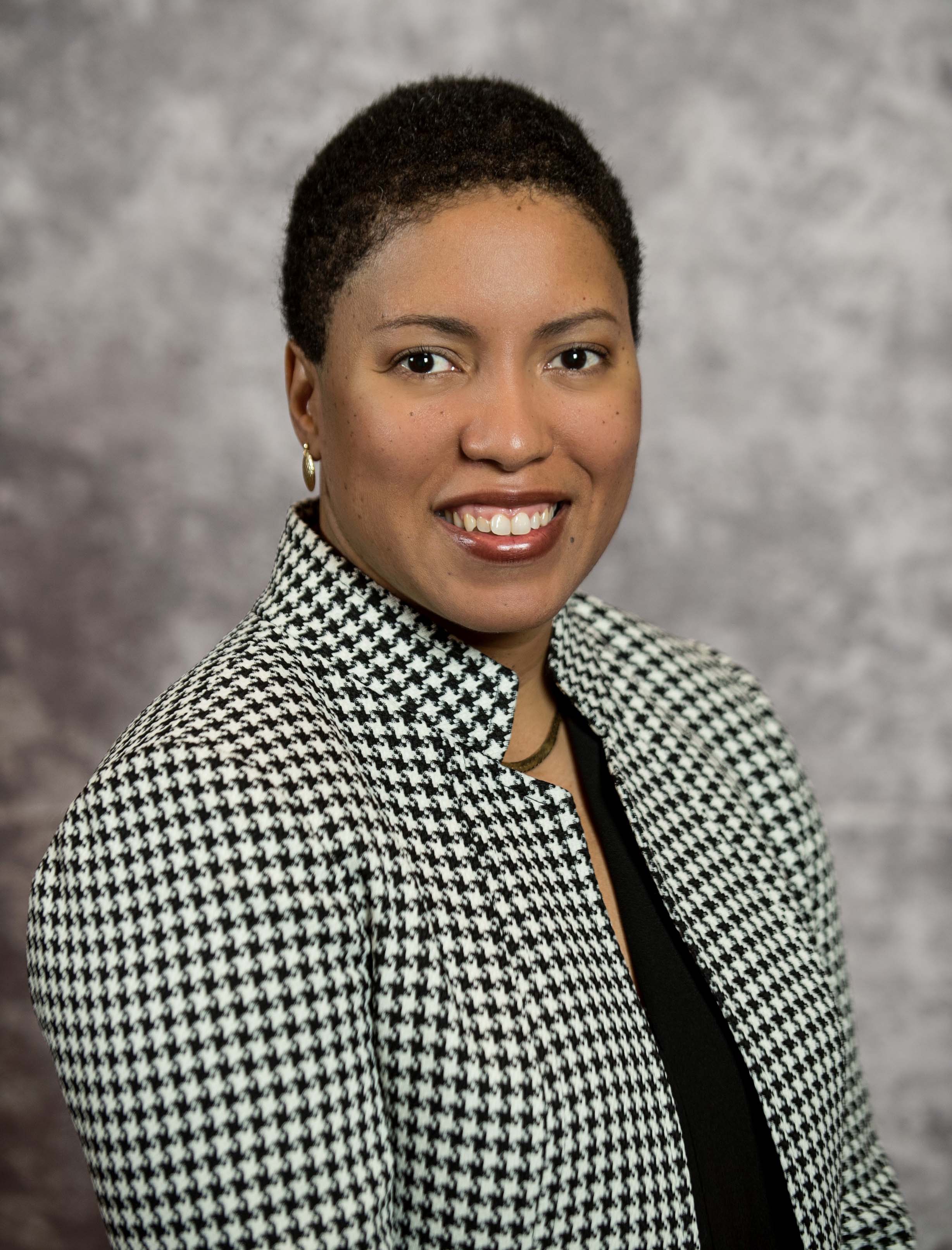
Lucida Plummer
Head of Employee D&I, JP Morgan Chase & Co
Previously, Lucida was the executive director, head of diversity, Asset & Wealth Management, at J.P. Morgan where she was responsible for driving the global diversity and inclusion strategy for the Asset & Wealth Management business, working with senior leaders to drive accountability and engagement around attracting, retaining and promoting a diverse and inclusive workforce.
Prior to joining JPMorgan Chase & Co, Lucida held various roles including vice president, diversity & inclusion for Wyndham Worldwide; director, global diversity & inclusion for MetLife and worked as a Human Resources Business Partner and in Employee Relations across a wide range of industries.
Lucida obtained a Master of Science in Human Resource Management from Mercy College, Dobbs Ferry, NY and her undergraduate in Psychology from the State University at Albany, Albany, NY. She lives in Rockland County, NY with her husband and son.
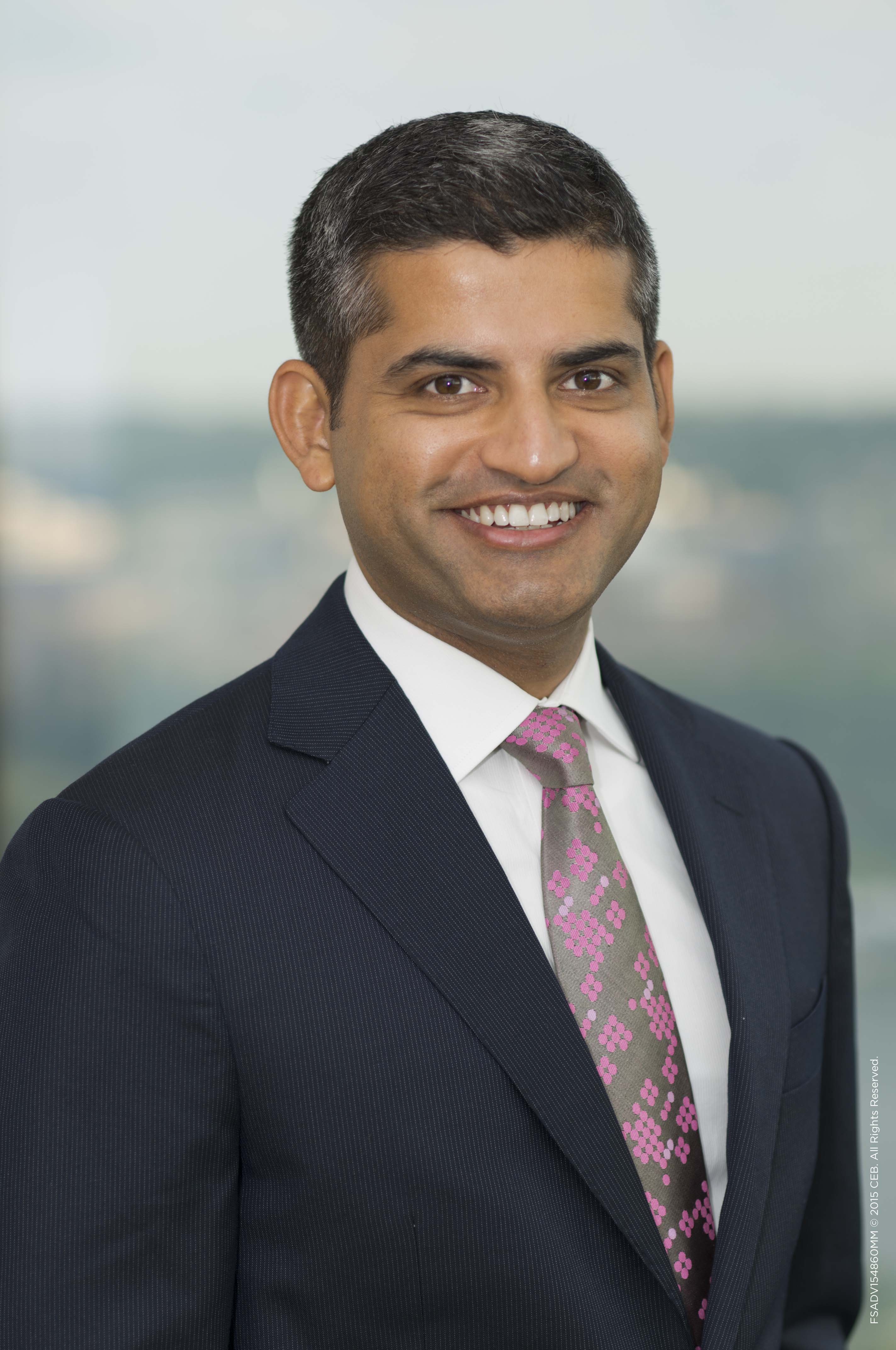
Rajiv Desai
Founder & CEO Chrysalis LLC
In his most recent role as Vice President – DEI and Responsibility at Gartner, he led the global DEI strategy and efforts. He also led Gartner’s strategic corporate social responsibility efforts and drove the initiative to publish their first Corporate Responsibility Report 2019.
In his prior role with CEB, Rajiv advised senior D&I leaders at over 100 organizations on D&I strategies. Before 2014, Rajiv worked with FedEx for almost nine years in Belgium, Dubai and the US, where he gained extensive business & operations experience.
Rajiv holds a Bachelor’s of Science in Business Administration (Finance & Marketing) from the University of Pittsburgh. He also completed a certificate course in Strategic Diversity & Inclusion Management from Georgetown University in 2017 and an Executive Education certificate in Inclusive Leadership from University of British Columbia’s Sauder School of Business. Rajiv is fluent in Spanish, Hindi, Bengali and Gujarati.
Rajiv is an active philanthropist. Since March 2020, he serves as the Board Chair for ORAM (Organization for Refuge, Asylum & Migration, which protects and empowers LGBTIQ asylum seekers and refugees globally). He also served on the board of The Rainbow Theatre Project (DC’s premier theatre for the LGBT community) from 2016 – 2020. At an international level, Rajiv has completed volunteering projects in Mexico, focusing on LGBTQ rights and Costa Rica, focusing on marine wildlife and turtle conservation. He is also a proud foster parent to 3 baby elephants at the Sheldrick Wildlife Trust in Kenya.
Rajiv has lived in India, Spain, Mongolia, the UAE, and Belgium; and has traveled to over 65 countries, bringing a truly global perspective and cultural agility to his role and DEI work.
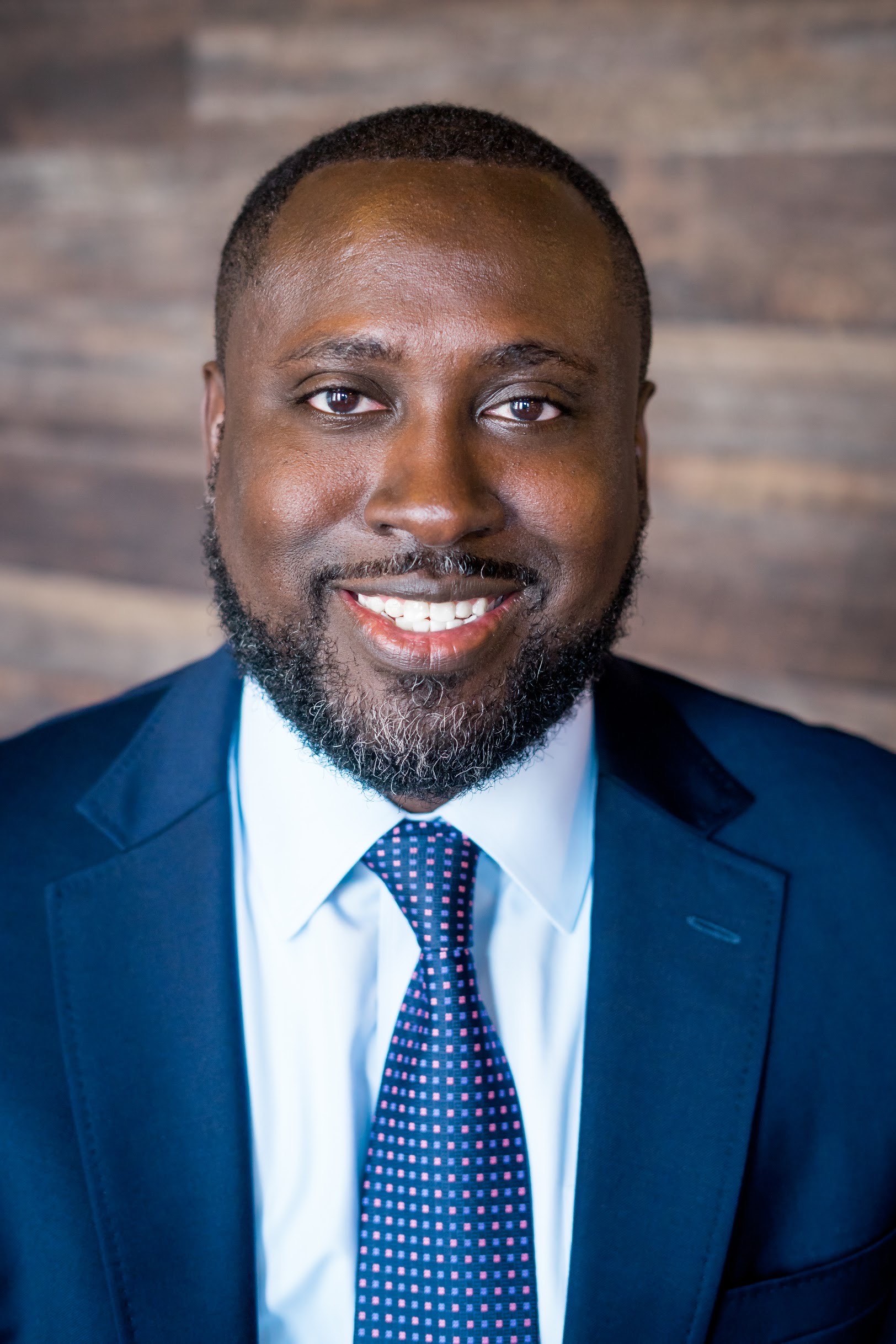
Shane Nelson
Inclusion & Diversity Strategy and Engagement Lead, Sanofi
In his last role, Shane was a Principal at Culture@Work, a division of Working Mother Media. He worked with global companies to design culture change and engagement strategies that maximized I&D efforts. In this role, Shane conducted culture assessments and inclusion diagnostics that mapped workplace challenges and delivered tailored client solutions. He designed and moderated employee listening sessions (virtual focus groups), hearing nearly 7,000 across-industry perspectives on organizational culture, inclusion, engagement, workplace bias, talent management, leader effectiveness and team dynamics.
Prior to Culture@Work, Shane spent 14 years at DiversityInc, holding numerous positions, including debriefing senior executives on their DiversityInc Top 50 survey results, and offering best practices and recommendations on next steps. Shane oversaw the content strategy for the DiversityInc Top 50 event, the company’s flagship event, and was the editor of DiversityInc’s best practices website, which offered articles, research, videos and webinars across the full spectrum of I&D management.
Shane holds a BA in Political Science and Government, and an Executive MBA from Rutgers University.

Panel Moderator
Patricia A. Lee
President & Founder, P.A.L. Coaching & Consulting
- Coaching of hi-potentials, diverse talent, and teams to achieve top performance and potential, and through career transitions.
- Providing high-impact solutions in human resources, organizational effectiveness, learning & leadership development, diversity & inclusion, change, and culture.
Prior to that, she served as senior vice president, human resources, and chief diversity officer for Wyndham Worldwide, where she was responsible for corporate human resources, enterprise human resources strategy, talent acquisition, leadership education, organizational effectiveness, and diversity & inclusion, garnering the #24 spot in DiversityInc listing. Prior to this role, she was vice president, organizational effectiveness at RCI, another Wyndham company, where she championed "Topgrading," aligning talent with business imperatives. Prior to joining RCI, Ms. Lee served as vice president, human resources for Liberty Travel and GOGO Worldwide Vacations Inc, where she obtained proven results in the areas of organizational capability, learning & development, and employee relations. In addition, Ms. Lee spent 12 years at Unilever Bestfoods North America, where she held various human resources positions, including human resources, organizational capability, staffing, training and development, and compensation. She began her career with KPMG Peat Marwick.
Ms. Lee is a member of N.J. State Advisory Board of Education at Rutgers University and serves on the Board of Trustees at NewBridge Services, Inc. leading their Governance Committee. As a former Board Member and Board President for Jersey Battered Women's Services (JBWS), she is now serving in an advisory capacity for JBWS after raising more than $1.2M in less than six months for their capital campaign. She was a member of both the International Tourism Partnership and the Morris County Chamber of Commerce, serving on the Board of Directors.
A recognized expert, Ms. Lee has been a featured speaker in Hotel Management News ("View From the Top: 2020 Vision on Leadership", 4/2020) and named one of the Most Influential Women of the Year, 2018 and 2019. She delivered the commencement address as the Keynote for Rutgers University, School of HR Management & Labor Relations, Piscataway, NJ celebrating the 25th graduating class in 2019. She has received the Humanitarian of the Year Award from JBWS, Exemplary Leadership from Morris County, and the Most Distinguished Service Award from The Senate and General Assembly of NJ.
Ms. Lee holds a Bachelor's degree in Classics from Lehigh University in Bethlehem, Pa. and a Master's degree in Human Resource Management and Labor Relations from Rutgers University in New Brunswick, N.J. She also received executive Master's degrees from Rutgers University and Wharton School of Business in Philadelphia, Pa. A New Jersey native, Ms. Lee lives in West Caldwell with her wife of 30 years, Marie, and their rescue cat Nikki.
View Recording
SESSION 5:
STRATEGIES FOR BUILDING INCLUSIVE CULTURES
Research shows that when employees feel valued, respected and connected to an organization’s purpose, they are more productive and stay longer. Organizations that are winning in the marketplace use culture as the differentiator – products and features are easy to replicate – culture is not. Company cultures that promote inclusive behaviors are also more likely to attract and keep [diverse] talent. In other words, there’s a bottom-line benefit of getting the culture piece right.
Join us for an interactive discussion with leading “caretakers” of culture on what it takes to create inclusive workplaces:
Talent and Diversity, Equity and Inclusion experts will discuss:
- What common elements define “inclusive” cultures?
- Is “inclusive leadership” a pre-requisite to building inclusive cultures?
- How can we measure “inclusion”? What are some of the key indicators that signal lack of inclusion?
- What are some of the most common and effective tools that promote inclusion?
- How can you engage employees in designing inclusive practices across your business?
Featured Speakers:
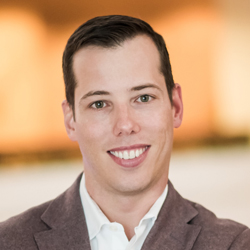
Jens Audenaert
DVP/GM, WorkMarket
Jens also serves as the Executive Sponsor of ADP’s Pride business resource group for LGBTQ associates and allies. He serves on multiple non-profit boards and was recognized by the Financial Times and Yahoo Finance as one of the top LGBTQ executive role models globally. Jens holds an MA in Economics from Ghent University (Belgium), an MSc in Economics from the London School of Economics and an MBA from Harvard Business School, where he received the Dean’s Award. He is based in New York City.
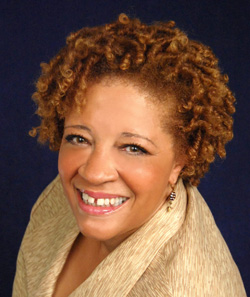
Willa Edgerton-Chisler
CEO Symphony Strategies
Willa collaborates with executives and leaders, helping them master transition, change, own and implement their signature leadership presence, and lead with inclusivity. A seasoned facilitator of Diversity and Inclusion workshops, an effective truth-teller and partner, Willa provides a multidisciplinary approach needed to understand, empathize, and engage; supports her clients’ challenges and orchestrates their efficacy towards embodying a culture of inclusion and equity, professionally and personally. Clients find her trademark style “straightforward, authentic, creative, transparent, thoughtful, passionate, strength-based and people-focused.”
Celebrating her 16th year as an International Coach Federation Credentialed Coach Willa holds additional credentials and certifications in Emotional Intelligence, and Diversity & Inclusion Management from Rutgers University, Fairleigh Dickinson University, Emotional Intelligence and Diversity Institute, and American University. She did her undergraduate work in psychology at Upsala College and is a graduate of the NTL Institute Diversity Practitioner Certification Program.
Acclaimed business professional, Willa was recognized as the 2019 ATHENA® Leader , and 2019 recipient of the Dr. Martin Luther King Service Award. She is the 2016 Shirley Chisholm Business Leader awarded by Lt. Governor, Shelia Oliver, Best 50 Women in Business in 2012 by NJBIZ, 2011 Garden State Woman of the Year-Diversity, 2008 U.S. SBA Region II & NJ Minority Business Champion and recognized in 2008, 2010, 2015, and 2019 by the State of NJ Senate and General Assembly Joint Legislative Resolution for her diverse body of work, leadership, and contributions.
Willa is a member of the African American Chamber of Commerce NJ, National Council of Negro Women, and serves as Director of Diversity, Equity, and Inclusion on the NJ Chapter Board of International Coach Federation. Previously she served on the advisory boards for the NJ Small Business Development Center - Rutgers-Newark, , public policy committee member of National Coalition of 100 Black Women, Inc. Bergen/Passaic NJ chapter, and NJ Association Women Business Owners State President Emerita.
A born and raised ‘Newark Jersey Girl’ Willa lives in Northern New Jersey with her best friend and husband, U.S. Marine Sgt., Veteran, Lawrence Chisler and beloved Havapoo, Spike Idris.
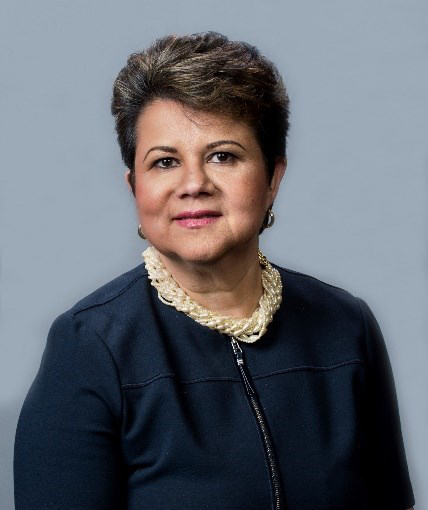
Panel Moderator
Rita Mitjans
WTR Advisory Board Member
Most recently, Rita served as Chief Diversity & Corporate Social Responsibility Officer for ADP where she developed the company’s global diversity, inclusion and corporate social responsibility strategy. By implementing integrated, systemic changes to the company’s talent processes and policies, ADP achieved significant increases in women and minorities in executive leadership, 8-points and 7-points respectively; and a top 3 industry ranking for diversity.
Rita also developed the company’s sustainability program, including publishing the company’s first Corporate Social Responsibility Annual Report and improving the company’s rankings with sustainability rating agencies such as CDP, ISS and MSCI. She increased the impact of the ADP Foundation, resulting in a 300% increase in employee and corporate giving and introduced a global employee hardship program.
Prior to this role, Rita held senior leadership positions in marketing, strategy and business development at ADP, Deutsche Bank and Bankers Trust. She serves on the Advisory Board of World Trade Resource, Inc., Big Brothers Big Sisters of Essex, Union & Hudson Counties and served as a Trustee of the ADP Foundation, the Foundation Board for New Jersey City University and Leadership New Jersey.
Rita holds a master's degree from Harvard Business School and a bachelor's degree, summa cum laude, from St. John's University. She completed the Lee Hecht Harrison Coaching Certification program and was named a Top Executive in Diversity by Black Enterprise® in 2015, 2016, 2017 and 2018.
View Recording
SESSION 4:
STRATEGIES FOR DIVERSIFYING YOUR TALENT PIPELINE
Numerous studies have shown that companies with diverse leadership teams perform better. And when it comes to innovation, few can argue that having diverse perspectives spurs new ideas and ways of solving age-old problems. Yet, organizations continue to say they struggle to find qualified diverse talent, especially in certain industries like technology and finance. In just about every industry, black professionals are poorly represented at the most senior levels and on corporate boards.
In today’s competitive marketplace, having access to top talent is more important than ever. Join us for an insightful look at the “State of Diversity in Corporate America” and what forward-thinking leaders are doing in their organizations to increase diversity in their talent pool and on their Boards.
Talent and Diversity, Equity and Inclusion experts will discuss:
- How to create “buy-in” for investing and expanding the sourcing net.
- What operational and system changes are needed before launching a diversity talent initiative?
- How to overcome potential cultural resistance to change?
- How do you address the perception of “favoritism” or “reverse discrimination”?
- What top 3 actions lead to meaningful improvements in hiring and advancing diverse talent?
Featured Speakers:
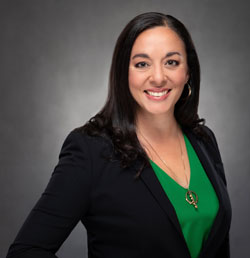
Cristina Santos
Head of Inclusion & Diversity, Total Well-Being and EEO, North America — Sanofi
Cristina has worked in several key commercial roles in the areas of Global Oncology Commercial Excellence, U.S. Sales Leadership, Multicultural Marketing, and Training & Development. Her passion for I&D sprung from years of devoted energy to global and local council work and leadership of several employee resource groups. She holds a strong belief that in order to achieve significant impact, we must invite the majority to the conversation alongside those traditionally underrepresented…in essence everyone should be included! This is a strong focus, along with efforts to enhance diversity and amplify inclusion at Sanofi. Her mantras: "See a need, fill a need" and "be the reason for the exception" have been driving forces for many of the opportunities she's earned personally and professionally. In 2018 she received the Trailblazer Award from the Women of Color in Pharma and her leadership has garnered several recognitions for Sanofi’s Inclusion & Diversity efforts.
When not at work Cristina volunteers her time on the New Jersey State Board for Junior Achievement, is a member of the Hispanic Scholarship Fund NJ Advisory Council and is also an active member of Impact100 Jersey Coast, a women’s collective giving organization. She holds a certificate in Diversity & Inclusion from Cornell University’s School of Industrial Labor Relations, where she is a member of the facilitating faculty in the Executive Education Department. She has an undergraduate degree in International Business from Florida International University in Miami. A proud wife and mother of four children that always keep life fun and interesting; she was recognized in 2012 as a "Working Mother of the Year" in Working Mother Magazine.
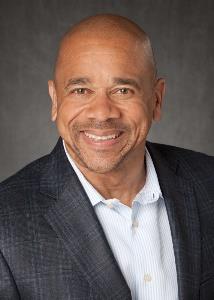
Bob Lockett
Chief Talent Officer at ADP
Prior to being the Chief Talent Officer, Bob was the Division Vice President, Head of Human Resources, for the small to mid-size business portfolio at ADP. In this capacity, Bob oversaw the HR strategy for two business units, Small Business Solutions (SBS) and Human Resources Outsourcing (HRO), a professional employer outsourcing organization.
Bob’s corporate career spans over 20 years with several top tier companies. Prior to ADP, Bob was the Senior Vice President/Head of Human Resources at Harland Clarke; Vice President, Talent Management at First Data; HR Executive at USAA; Director, Human Resources at Limited Brands (Bath& Body Works, Express); Director, Player Services at Harrah’s Casino; Senior Group Manager, HR at Frito Lay, and Executive Senior Partner at The Lucas Group. He has led multiple HR Centers of Excellence (Talent Acquisition, Talent Management, Employee Relations and HR Business Partners) throughout his career.
Prior to his corporate career, Bob served as a field artillery officer in the US Army for 9 years. He commanded an artillery unit in Germany and is a Desert Storm veteran.
Bob is a graduate of the United States Military Academy at West Point and earned an MBA from the University of Texas at Dallas.
In his community, Bob sits on the board of directors for the Johnny Mac Soldiers Fund, coaches little league sports, is a lifetime member of the VFW, The American Legion, and the National Black MBA Association.
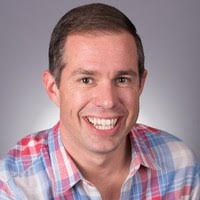
John Salisbury
Practice Leader Executive Talent Acquisition at Google

Panel Moderator
Rita Mitjans
WTR Advisory Board Member
Most recently, Rita served as Chief Diversity & Corporate Social Responsibility Officer for ADP where she developed the company’s global diversity, inclusion and corporate social responsibility strategy. By implementing integrated, systemic changes to the company’s talent processes and policies, ADP achieved significant increases in women and minorities in executive leadership, 8-points and 7-points respectively; and a top 3 industry ranking for diversity.
Rita also developed the company’s sustainability program, including publishing the company’s first Corporate Social Responsibility Annual Report and improving the company’s rankings with sustainability rating agencies such as CDP, ISS and MSCI. She increased the impact of the ADP Foundation, resulting in a 300% increase in employee and corporate giving and introduced a global employee hardship program.
Prior to this role, Rita held senior leadership positions in marketing, strategy and business development at ADP, Deutsche Bank and Bankers Trust. She serves on the Advisory Board of World Trade Resource, Inc., Big Brothers Big Sisters of Essex, Union & Hudson Counties and served as a Trustee of the ADP Foundation, the Foundation Board for New Jersey City University and Leadership New Jersey.
Rita holds a master's degree from Harvard Business School and a bachelor's degree, summa cum laude, from St. John's University. She completed the Lee Hecht Harrison Coaching Certification program and was named a Top Executive in Diversity by Black Enterprise® in 2015, 2016, 2017 and 2018.
View Recording
SESSION 3:
ENGAGING IN COURAGEOUS CONVERSATIONS: LET’S TALK ABOUT RACE
If we are ever going to truly achieve equity and justice for all, we have to get comfortable talking about the issues that are preventing us from making progress. Corporations are recognizing that a failure to address diversity, equity and inclusion can impact their business. From consumer boycotts to supply chain to capital access, corporations are seeing pressure like never before. Amidst this backdrop is a growing awareness that the media, social activists and an enlightened generation are playing a key role in shaping reforms.
Join us for a candid discussion on “how to get comfortable with the uncomfortable” and what steps can be taken to translate your brand statements and values into sustainable progress in the workplace and society.
- What is privilege and how does it impact education, healthcare, employability and wealth?
- Why is talking about race in the workplace so difficult? How can we create a “safe space”?
- How do we address the “all lives matter” vs. “black lives matter” issue in a way that helps us move forward together?
- How do we recognize our own biases?
- What intentional steps can we take to promote diversity, equity and inclusion in the workplace and in our lives?
Featured Speakers:

Jackie Glenn
CEO, Glenn Diversity Inclusion & HR Solutions
Her distinctive take on navigating the working world uniquely qualified Jackie to lead EMC’s efforts of building a diverse workforce. She quickly progressed to Global Chief Diversity Officer, overseeing 60,000 employees worldwide. Within this role, she created programs in organizational development, leadership consulting, and employee training. Jackie lifted EMC’s entire corporate culture to international recognition and acclaim by pioneering many of the best practices in the diversity and inclusion space.
In addition to consulting, executive coaching, and helping corporations implement strategies and best practices through GLENN DIVERSITY Inclusion & HR Solutions, Jackie is a dynamic speaker. She often hosts national and international conferences, and participates on industry panels.
Jackie holds a Master of Science degree in human resources management from Lesley University in Cambridge, MA and a bachelor’s degree from Emmanuel College in Boston, MA. Her love for civic advocacy includes service on the Board of the Children’s Services of Roxbury (MA), the Board of the Museum of African American History (Boston), and the Board of Overseers of Beth Israel Deaconess Hospital.
Lift As I Climb: An Immigrant Girl’s Journey Through Corporate America is Jackie's instructional biography on how she employed her ten self-created "gems" to guide her journey from nanny to CEO. Within its pages, Glenn reveals a vow she made to herself, alone at a cold bus stop soon after she arrived to the U.S. “When life gets better for me, no one will be left at the bus stop.” Her life is a reflection of that conviction.
For an extended look into Jackie’s accomplishments and accolades, see her full bio on the GLENN DIVERSITY Inclusion & HR Solutions website.

T. Oliver Reid
Award-winning Broadway performer & founder of The Black Theater Coalition
In the spring of 2020, Mr. Reid co-founded the Black Theater Coalition with the mission of building a sustainable ethical roadmap that will increase employment opportunities for black theater professionals, who currently make up less than 1% of the workforce.

Panel Moderator
Rita Mitjans
WTR Advisory Board Member
Most recently, Rita served as Chief Diversity & Corporate Social Responsibility Officer for ADP where she developed the company’s global diversity, inclusion and corporate social responsibility strategy. By implementing integrated, systemic changes to the company’s talent processes and policies, ADP achieved significant increases in women and minorities in executive leadership, 8-points and 7-points respectively; and a top 3 industry ranking for diversity.
Rita also developed the company’s sustainability program, including publishing the company’s first Corporate Social Responsibility Annual Report and improving the company’s rankings with sustainability rating agencies such as CDP, ISS and MSCI. She increased the impact of the ADP Foundation, resulting in a 300% increase in employee and corporate giving and introduced a global employee hardship program.
Prior to this role, Rita held senior leadership positions in marketing, strategy and business development at ADP, Deutsche Bank and Bankers Trust. She serves on the Advisory Board of World Trade Resource, Inc., Big Brothers Big Sisters of Essex, Union & Hudson Counties and served as a Trustee of the ADP Foundation, the Foundation Board for New Jersey City University and Leadership New Jersey.
Rita holds a master's degree from Harvard Business School and a bachelor's degree, summa cum laude, from St. John's University. She completed the Lee Hecht Harrison Coaching Certification program and was named a Top Executive in Diversity by Black Enterprise® in 2015, 2016, 2017 and 2018.
View Recording
SESSION I:
MAKING THE CASE FOR WHY IT MATTERS
In business, resources are scarce and trade-offs must be made – that’s the real world. Yet organizations understand that to remain competitive, they must be able to attract and retain the best talent and reflect the customers they serve. So why haven’t we made more progress with Diversity, Equity and Inclusion? What’s getting in the way? How do leaders responsible for driving Diversity, Equity and Inclusion make the case for greater focus, investment and systemic change?
Join us for a candid discussion on why, despite the best efforts of talented Diversity, Equity and Inclusion professionals, we have yet to achieve equitable representation in senior leadership and what can be done to accelerate progress. Industry-leading experts will discuss:
- The difference between diversity, equity and inclusion and their interconnectedness
- What does Diversity, Equity and Inclusion look like at the best companies? What do the top companies for Diversity have in common?
- What are the typical barriers to gaining organizational buy-in? What unique challenges do global companies face?
- What are the “must haves” in building a compelling Diversity, Equity and Inclusion case?
- How can organizations develop effective accountability systems to ensure progress?
Whether you are early in the journey or a seasoned Diversity, Equity and Inclusion professional, this webinar will give you practical steps you can take to elevate the importance of Diversity, Equity and Inclusion in your organization and create sustainable practices that move the needle.
Featured Speakers:
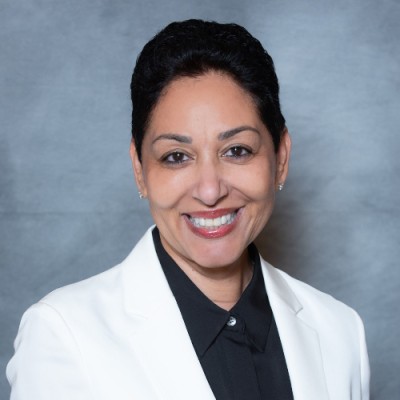
Gerri Mason Hall
Chief Diversity, Inclusion & Social Responsibility Officer, Sodexo
Augmenting her commitment to Inclusion and advancing the underserved, Gerri is a member of the UNCF Board and sits on its Audit Committee. Gerri is a long-standing member of the Sodexo Stop Hunger Foundation and has been Chair of the Board for two years. She also sits on the Board of the Congressional Hunger Center.
Gerri is a sought – after speaker and expert in the areas of Inclusion & Equity, Human Resources and Corporate Responsibility. A graduate of Vassar College and the George Washington University National Law Center, Gerri held several appointments in both the federal and District of Columbia governments. Gerri is a native of Washington, DC and actively involved in her community. She is a member of the Executive Leadership Council and the Links, Inc.
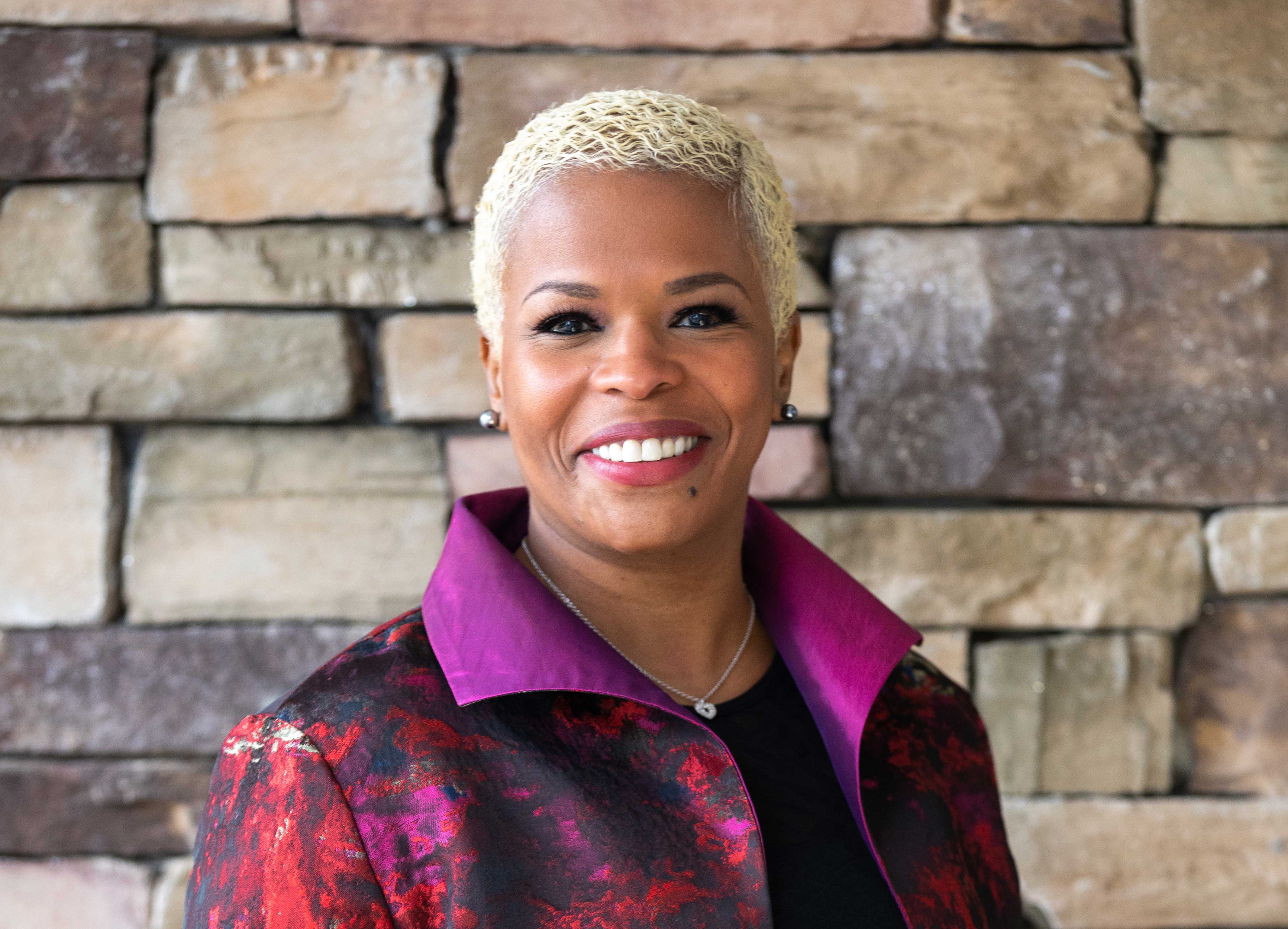
Carolynn Johnson
Chief Executive Officer, DiversityInc Media, LLC
Ms. Johnson previously served as the company’s Chief Operations Officer and Chief Revenue Officer during which she was responsible for operations, all major corporate partnerships, web properties and events. She was also responsible for sales management, information technology, circulation, business development and the development and execution of the annual DiversityInc Top 50 competition.
For the last 20 years, DiversityInc has been the gold standard of measurement of effective diversity, inclusion and equity strategies. The annual Top 50 competition is regarded as the Good Housekeeping Seal of Approval for equal access and opportunity for all in the workplace. Through its benchmarking and consulting services, the company advises leaders of Fortune 200 companies and major employers about the pertinent issues related to diversity and inclusion that are directly tied to profitability and competitiveness.
Prior to joining DiversityInc in 2003, Ms. Johnson was the marketing coordinator of pharmaceutical and science groups for Advanstar Communications. Prior to Advanstar, she was an account manager at Correct Communications, a full-service marketing and communications agency.
Ms. Johnson completed an executive management program at the Tuck Business School at Dartmouth College and earned an MBA from Rutgers Business School.
She has been the director of the DiversityInc Foundation, a nonprofit that funds scholarships for financially disadvantaged students, for the past 10 years. She is also on the National Board of Directors at INROADS, an organization that aims to fix the lack of racial and ethnic diversity in corporate America. Ms. Johnson is a Founding Board Member of the Rutgers Business School Center for Women in Business. While completing her MBA, Ms. Johnson was an elected class officer and was a recipient of the Ted Marousas Award for Expanding the footprint of the Rutgers EMBA.
She lives in New Jersey with her husband and two children.

Patricia A. Lee
President & Founder, P.A.L. Coaching & Consulting
- Coaching of hi-potentials, diverse talent, and teams to achieve top performance and potential, and through career transitions.
- Providing high-impact solutions in human resources, organizational effectiveness, learning & leadership development, diversity & inclusion, change, and culture.
Prior to that, she served as senior vice president, human resources, and chief diversity officer for Wyndham Worldwide, where she was responsible for corporate human resources, enterprise human resources strategy, talent acquisition, leadership education, organizational effectiveness, and diversity & inclusion, garnering the #24 spot in DiversityInc listing. Prior to this role, she was vice president, organizational effectiveness at RCI, another Wyndham company, where she championed "Topgrading," aligning talent with business imperatives. Prior to joining RCI, Ms. Lee served as vice president, human resources for Liberty Travel and GOGO Worldwide Vacations Inc, where she obtained proven results in the areas of organizational capability, learning & development, and employee relations. In addition, Ms. Lee spent 12 years at Unilever Bestfoods North America, where she held various human resources positions, including human resources, organizational capability, staffing, training and development, and compensation. She began her career with KPMG Peat Marwick.
Ms. Lee is a member of N.J. State Advisory Board of Education at Rutgers University and serves on the Board of Trustees at NewBridge Services, Inc. leading their Governance Committee. As a former Board Member and Board President for Jersey Battered Women's Services (JBWS), she is now serving in an advisory capacity for JBWS after raising more than $1.2M in less than six months for their capital campaign. She was a member of both the International Tourism Partnership and the Morris County Chamber of Commerce, serving on the Board of Directors.
A recognized expert, Ms. Lee has been a featured speaker in Hotel Management News ("View From the Top: 2020 Vision on Leadership", 4/2020) and named one of the Most Influential Women of the Year, 2018 and 2019. She delivered the commencement address as the Keynote for Rutgers University, School of HR Management & Labor Relations, Piscataway, NJ celebrating the 25th graduating class in 2019. She has received the Humanitarian of the Year Award from JBWS, Exemplary Leadership from Morris County, and the Most Distinguished Service Award from The Senate and General Assembly of NJ.
Ms. Lee holds a Bachelor's degree in Classics from Lehigh University in Bethlehem, Pa. and a Master's degree in Human Resource Management and Labor Relations from Rutgers University in New Brunswick, N.J. She also received executive Master's degrees from Rutgers University and Wharton School of Business in Philadelphia, Pa. A New Jersey native, Ms. Lee lives in West Caldwell with her wife of 30 years, Marie, and their rescue cat Nikki.

Panel Moderator
Rita Mitjans
WTR Advisory Board Member
Most recently, Rita served as Chief Diversity & Corporate Social Responsibility Officer for ADP where she developed the company’s global diversity, inclusion and corporate social responsibility strategy. By implementing integrated, systemic changes to the company’s talent processes and policies, ADP achieved significant increases in women and minorities in executive leadership, 8-points and 7-points respectively; and a top 3 industry ranking for diversity.
Rita also developed the company’s sustainability program, including publishing the company’s first Corporate Social Responsibility Annual Report and improving the company’s rankings with sustainability rating agencies such as CDP, ISS and MSCI. She increased the impact of the ADP Foundation, resulting in a 300% increase in employee and corporate giving and introduced a global employee hardship program.
Prior to this role, Rita held senior leadership positions in marketing, strategy and business development at ADP, Deutsche Bank and Bankers Trust. She serves on the Advisory Board of World Trade Resource, Inc., Big Brothers Big Sisters of Essex, Union & Hudson Counties and served as a Trustee of the ADP Foundation, the Foundation Board for New Jersey City University and Leadership New Jersey.
Rita holds a master's degree from Harvard Business School and a bachelor's degree, summa cum laude, from St. John's University. She completed the Lee Hecht Harrison Coaching Certification program and was named a Top Executive in Diversity by Black Enterprise® in 2015, 2016, 2017 and 2018.
